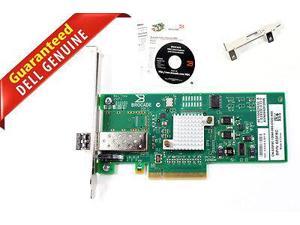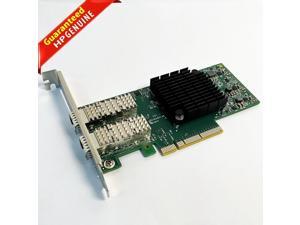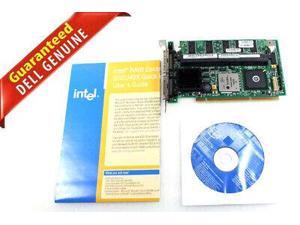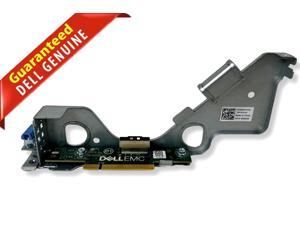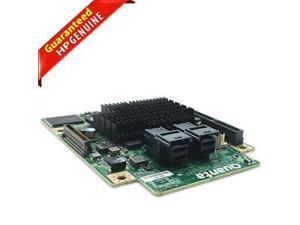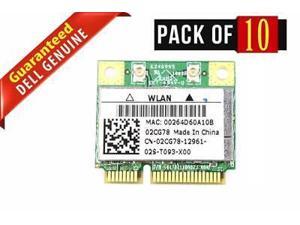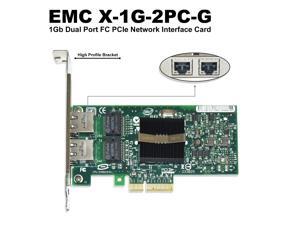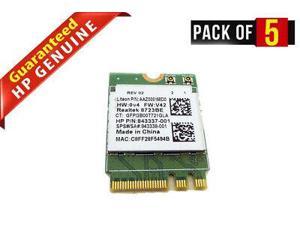Laptop Add-on Cards - Showing 49 - 62 of 62 Products
Refurbished: Dell Brocade 815 8GB Single Port PCIe 33F8C HighProfile w/8GB Transceiver ...
- Model #: CN-033F8CWWk
- Item #: 9SIVF9YK413799
- Return Policy: JescorB2B Return Policy
Refurbished: Geniune HP Mellanox PCI Express 25 Gbps Network Adapter W/Bracket ...
- Brand: HP
- Type: Accessories
- Model #: MCX4421A-ACANMSa
- Item #: 9SIVF9YK413819
- Return Policy: JescorB2B Return Policy
Refurbished: New Original Dell Intel SRCU42X PCI-X Dual-Channel Ultra320 SCSI RAID ...
- Model #: SRCU42X3XL
- Item #: 9SIVF9YK413817
- Return Policy: JescorB2B Return Policy
Refurbished: Dell EMC PowerEdge Server R440 10 BAY 4 X U.2 NVME Riser 588DM 5VKVR
- Model #: 588DM
- Item #: 9SIVG1JK581328
- Return Policy: Fastparts Return Policy
Refurbished: (NOT FOR HOME PC!) Geniune HP QUANTA SAS 3108 12GBS Mezzanine Raid ...
- Model #: WBATTiyH
- Item #: 9SIVF9YK413793
- Return Policy: JescorB2B Return Policy
Refurbished: Lot of 10 Dell Inspiron 1121 HP 2000 Wireless Card BCM94313HMGB ...
- Model #: CN-02CG78jtE
- Item #: 9SIVF9YK413833
- Return Policy: JescorB2B Return Policy
Refurbished: New Genuine Dell HS202IE 2-Port eSATA PCI Express Host Card Adapter R233P ...
- Model #: CN-0R233Ped5
- Item #: 9SIVF9YK413829
- Return Policy: JescorB2B Return Policy
Refurbished: Mellanox ConnectX-3 CX354A MCX354A-TCBT 2-Port 10Gb InfiniBand PCI-E ...
- Model #: MCX354A-TCBTJoo
- Item #: 9SIVF9YK413798
- Return Policy: JescorB2B Return Policy
Refurbished: Dell EMC 1Gb Dual Port FC PCle Network Interface Card P-X-1G-2PC-G
- Model #: P-X-1G-2PC-G+AA
- Item #: 9SIVG1JKDA9984
- Return Policy: Fastparts Return Policy
Refurbished: LOT x 5 QLE4062C-T-DEL-SP ISCSI DP/N 0C9C50 iSCSI PCIe Dual Port HBA card
- Model #: 6KRRXcj3
- Item #: 9SIVF9YK413824
- Return Policy: JescorB2B Return Policy
Refurbished: IBM EC33 2-Port 56Gb QSFP FDR IB PCIe Adapter - 00RX852 - Mellanox ...
- Model #: 00RX852OyG
- Item #: 9SIVF9YK413820
- Return Policy: JescorB2B Return Policy
Refurbished: Genuine HP 3PAR StoreServ 20000 4-Port 16GB HBA 782412-001 ...
- Model #: C8S92-630024Xz
- Item #: 9SIVG1JK581275
- Return Policy: Fastparts Return Policy
Refurbished: Dell M6MG6 High-Speed Uplink Uplink module 0M6MG6
- Model #: CN-M6MG6XJA
- Item #: 9SIVF9YK413801
- Return Policy: JescorB2B Return Policy
Refurbished: LOT x 5 HP Pavilion 15-au063nr 15.6"Wireless WiFi Card 855106-855 ...
- Model #: 843337-001xh8
- Item #: 9SIVF9YK413803
- Return Policy: JescorB2B Return Policy
Tips for Choosing the Best Business Laptop
Introduction
Similar to USB devices, ExpressCard, CardBus, and PCMCIA expansion cards can enhance your organization’s laptops so that they can be adapted to fit the needs of your staff. Also like USB devices, laptop expansion cards can be quickly installed and removed. For example, a professional that requires his or her laptop to have serial connector support for an older printer will be able to add that capability swiftly with expansion cards. There are a variety of features and functionality that can be added to laptops with expansion cards, such as: additional USB ports, IEEE 1394 support, eSATA support, Ethernet, and more.
Below are the three most common standards for laptop expansion cards:
PCMCIA (PC Card)
Short for Personal Computer Memory Card International Association, it is a laptop expansion card standard originally designed to allow for more data storage. The standard eventually came to be used by many types of peripherals other than storage expansion cards, such as Ethernet and SATA support. They can sometimes also be referred to as PC Cards.
CardBus
A successor to the original PC Card standard, it is compliant with PCMCIA 5.0 specifications and features a 32-bit 33MHz PCI bus.
While it has the same form factor as the PC Card standard a CardBus laptop expansion card is incompatible with a PC Card slot.
ExpressCard
The ExpressCard standard was originally developed by the PCMCIA and is currently the fastest and most widely used expansion card standard. It comes in two form factors, ExpressCard/34 (34mm wide) and ExpressCard/54 (54mm wide). Cards with the ExpressCard/34 form factor can be used with ExpressCard/54 slots, but not vice versa.

